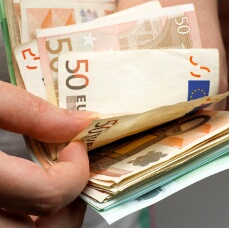The euro fell against most of its major rivals today with the exception of the Great Britain pound. Positive macroeconomic data was unable to support the currency.
The ZEW Indicator of Economic Sentiment for Germany climbed from -24.1 in November to -17.5 in December instead of falling to -25.0 as analysts had predicted. The index for the whole eurozone edged up from -22.0 to -21.0, whereas analysts had predicted a decrease to -23.2. The report was not particularly optimistic, though, saying:
Although the rise in economic expectations is a welcome one, it should not be over-interpreted. The assessment of the economic situation has worsened dramatically for both Germany and the Eurozone. This is indicative of relatively weak economic growth in the fourth quarter. In addition, uncertainties also remain in terms of the looming international trade dispute and Brexit, which have a particularly negative impact on private investment and Germanyâs exports.
Talking about the Brexit, it was the likely reason for the euro’s rally against the sterling, but it was not helping the shared 19-nation currency against other peers. The even more pressing concern was the “yellow vest protests” in France. Uncertainty associated with the political turmoil in the European Union’s third biggest economy hurt the appeal of the euro to investors.
EUR/USD declined from 1.1356 to 1.1319 as of 21:27 GMT today, retreating from the daily high of 1.1400. EUR/JPY went down from 128.69 to 128.38. At the same time, EUR/GBP advanced from 0.9040 to 0.9068, bouncing from the daily low of 0.9006.
If you have any questions, comments or opinions regarding the Euro,
feel free to post them using the commentary form below.



Be First to Comment